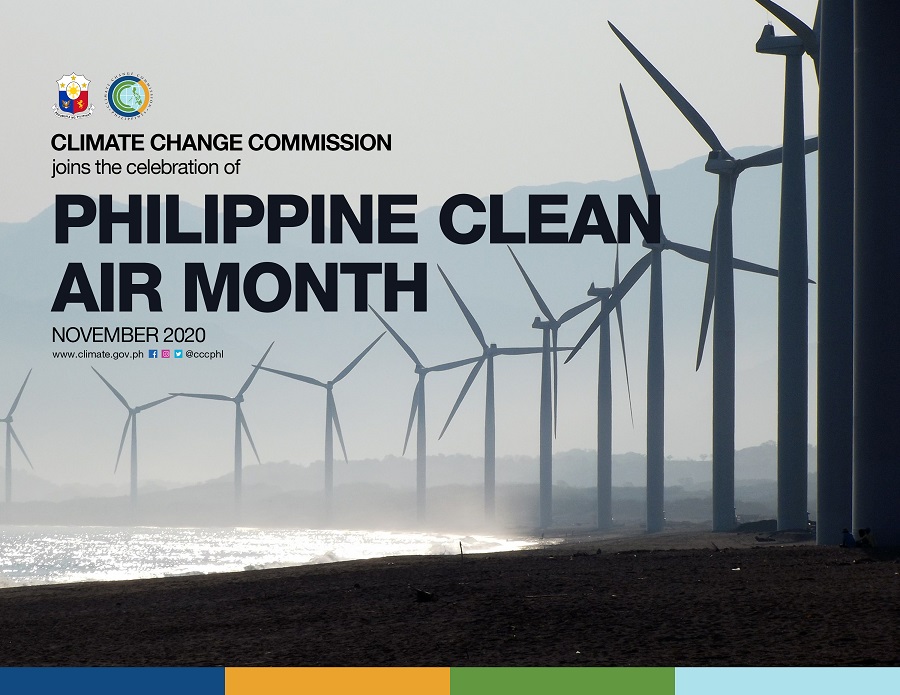
November 09, 2020 Monday

MANILA, 10 November 2020 — The Climate Change Commission (CCC) called for the development and implementation of functional and sustainable urban mobility plans in observance of Philippine Clean Air Month.
Presidential Proclamation No. 1109, s. 1997 declares the month of November of every year as “Clean Air Month Through National Vehicle Inspection and Maintenance Consciousness.” Consistent with the Republic Act No. 8749 or the Philippine Clean Air Act of 1999, the observance aims to create awareness and to encourage the motoring public to take positive steps to help improve air quality.
A report from the Centre for Research on Energy and Clean Air (CREA) and Greenpeace Philippines laid down recommendations to reduce air pollution post-COVID-19 in order to safeguard people’s health and ensure a better normal.
According to the report, vehicles are a major source of air pollution, accounting for 65% of air pollution in the country, primarily in Metro Manila. Air pollution is also expected to increase given the projected 4.6% annual growth rate in energy demand. This is consistent with the projected increase of road vehicles to 24.8 million by 2030, compared to a baseline of 6.6 million in 2010.
As a measure to greatly improve mobility in cities is a key solution to the problem, the Department of Public Works and Highways has issued Department Administrative Order No. 88, s. 2020. This is seen as a transformational shift in infrastructure planning and design towards a climate-friendly mass public transport system and an effective investment to enable shared mobility, walking, and cycling, as the report recommends.
The CCC echoes these recommendations by encouraging cities and citizens to adopt greener modes of transportation to commute in this period of pandemic and climate crisis, and promoting inclusive urban mobility solutions as part of the country’s post-pandemic recovery.
The imposed community quarantine across the country had already given us a glimpse of what cities can be like with vastly improved air quality. But months later, with the easing of regulations and the return of motor vehicles on the road, air pollution is gradually making a comeback.
With this, the agency also urges local government units themselves to establish dedicated, protected, and connected bike lanes with green spaces to link cities as well as nearby provinces and encourage more Filipinos to choose healthier and sustainable ways to commute.
The CCC believes that having access to these safe and functional types of mobility systems and non-motorized mainstream modes of transportation will open doors for effective air quality, climate, and environment management which will benefit the present and the future generations.